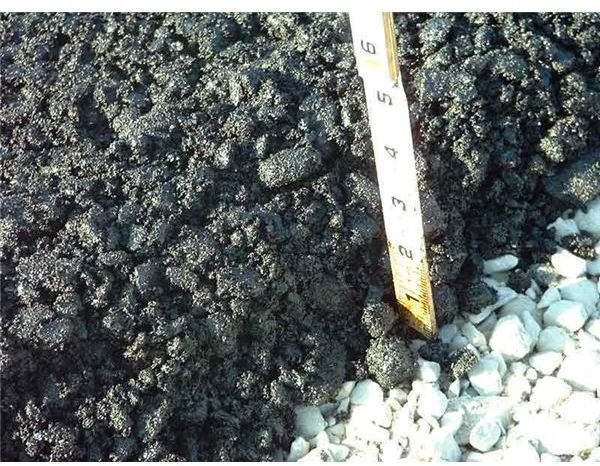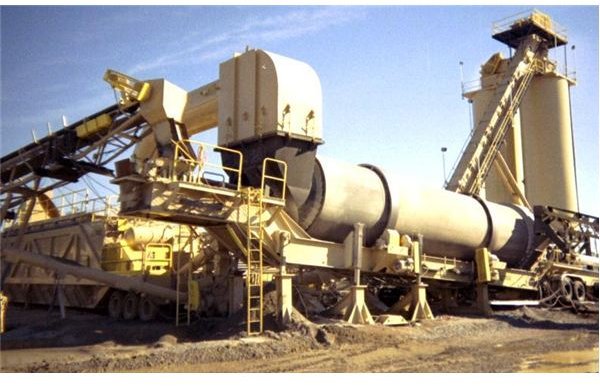Asphalt Mixing Plants
What is Asphalt
Asphalt is an important paving material that is produced from asphalt cement and crushed rocks. Asphalt cement is a mix of petroleum composites that are produced in oil refineries. Asphalt cement is heated by the asphalt plants in tanks, and subsequently combined with crushed rocks. An asphalt plant basically is equipment that is used for the manufacture of asphalt and coated road stone, also called tarmac. The asphalt produced is loaded into trucks for distribution to the construction sites for residential areas, parking, highways, and cement coating for asphalt driveways.
Manufacture Of Asphalt
Asphalt manufacturing involves the mixing of several aggregates, filler, and sand in appropriate quantities that are heated in a
controlled environment. The mixture is provided with an asphalt binder coating, which is normally tar- or bitumen-based. The finished product temperature should be adequate so that the material is effective after transportation to the construction site. A temperature range of 110-210 degrees Celsius is considered to be satisfactory. Gradually, recycled asphalt pavement has been introduced as an asphalt mix component. The main components of asphalt mix plants are the continuous, or drum mix, semi-continuous for the asphalt plant, and the batch heater. The continuous mix asphalt plant has the highest capacity, while the batch heater has the minimum capacity.
Asphalt Ingredients
The main ingredients of asphalt mix are:
Sand
Water content in sand is normally high, due to which a considerable portion of energy is utilized for boiling of the water in sand. This

process involves a large percentage of the production cost. The water content in sand considerably varies when stocked outdoors, due to temperature variations. The dry sand quantity is critical since the binder attaches itself to the aggregate surface. The moisture content should be considered, and the corresponding dry weight must be determined.
Binder
Binder is available in several grades, called pen grade or penetration grade. The binder values represent the penetration of a needle in the binder surface at specific temperatures. The greater the binder value, the softer will be the binder. This value influences the effectiveness and stiffness of the hot asphalt. A mix of different values may be used to obtain suitable characteristics of the mix.
Filler
Filler occupies the empty space between the aggregate, and enhances the wearing potential of the mix. It is fed in a dry condition into the mixture, during or may be after the addition of binder.
How Asphalt Plants Change Air Quality
Air emissions are produced during numerous phases of asphalt production. Majority of the emissions are from the main asphalt stack.

Fumes from the asphalt storage and the vehicle areas are responsible for the residual air emissions, also called fugitive emissions. All processes, in which the materials are burned or heated, will produce multiple air emissions. Such emissions can be considerably harmful to breathe. The harmful emission problems may be avoided by installation of emission controls that minimize the emissions of injurious air pollutants. This is the leading code for the air quality control. To meet the air quality restrictions, the asphalt plants are enforced to incorporate controls like scrubbers, tall emission stacks, and better fuel grades for heaters. The asphalt production period may also be reduced as an effective measure to control the air quality.
